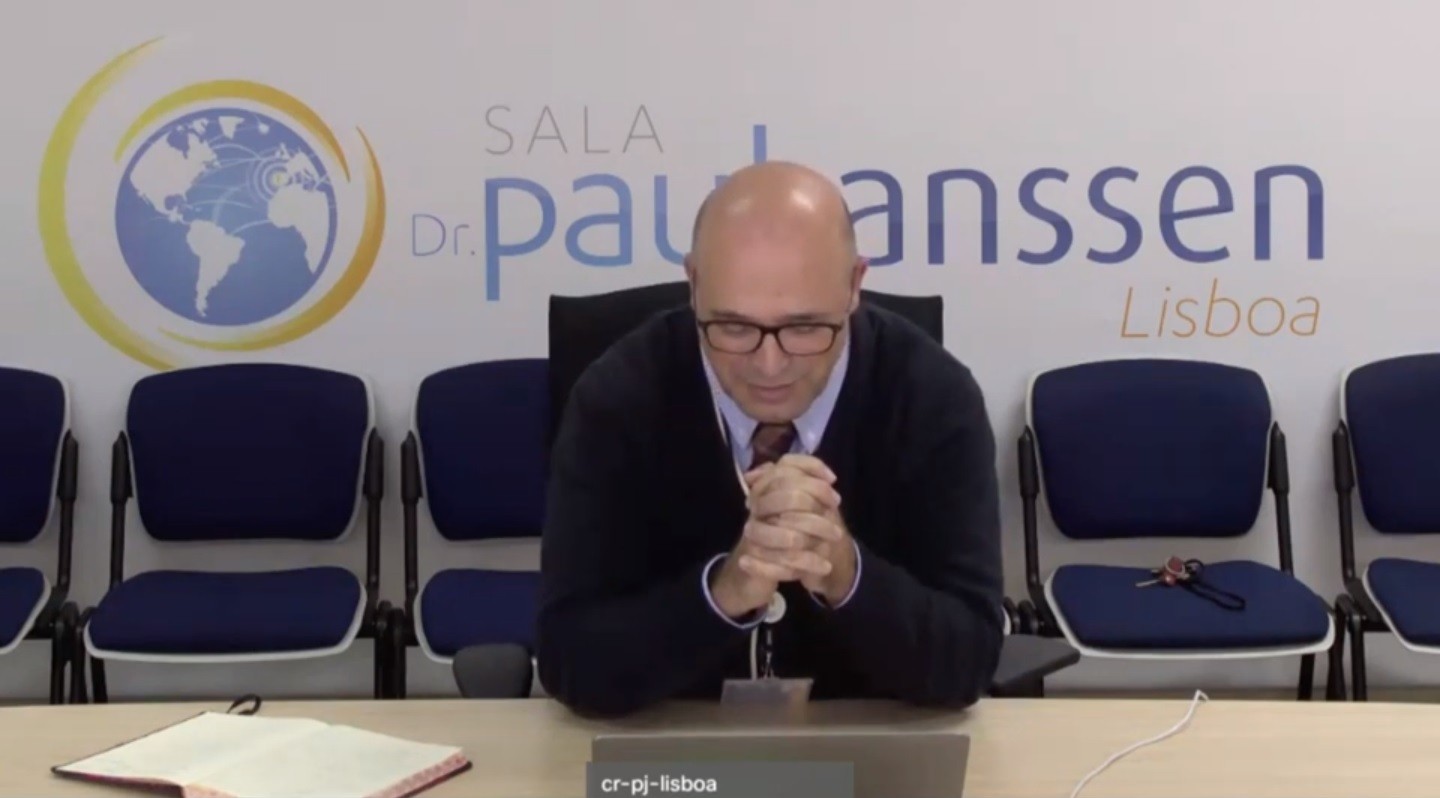At first glance, this question may seem naive, but according to Professor Joaquim Ferreira, “At the end of an appointment, a pat on the back can be a positive reinforcement” in treating an illness.
At the last FMUL Talk, in the Paul Janssen Room of the Faculty of Medicine of the University of Lisbon, the effect that a simple "act of sympathy" can have on clinical practice was discussed. For the more distracted, the result of a pat on the back may be the controversial Placebo effect.
Placebo is a Latin word that means “I will please” and applies to both research and clinical contexts. It is an inert intervention, which can be reflected in the administration of a substance, in a gesture, in an attitude, without pharmacological effects (from the point of view of interference with the pathogenesis of a disease), but which results in a benefit.
During the Talk, Joaquim Ferreira, Neurologist and Professor at FMUL, showed us, through a panoply of research studies in the area of Parkinson's Disease, that the Placebo effect results from N factors (physical, sociological, environmental, and verbal, among others), which influence the magnitude of its effect. If we idealize Placebo as a treatment, everything counts, from the colour of the pill, the administration format, the words of support exchanged with a doctor, to the place where the intervention takes place.

The Placebo Effect as an Act of Sympathy
Returning to the "beginning" of medicine in this context does not seem to be a bad option. Before pharmacological treatments, the doctor often only had the option of offering words of strength and motivation to his patient. Today, notwithstanding the development of the pharmacological sciences, the doctor-patient relationship can do much to induce a benefit in the patient's well-being. According to Professor Joaquim Ferreira, this mystery is explained by the neurobiological process of release of pathogenic neurotransmitters from diseases that leads to this improvement. Confused? - No reason to be! Based on the study Placebo administration is associated with dopamine release, placebo administration promotes dopamine release, "the motivation molecule", in the brain. In these cases, the Placebo effect is on the same level as levodopa, a standard drug used to treat Parkinson's disease.
Placebo and its forms of administration
The Placebo effect is not limited to oral medications. There is another modality, called "Sham", a false intervention. We talk about fake surgeries as “Sham Surgeries”, where the patients are taken to the operating rooms, anesthetized and the Trepan hole is made - a surgical wound in the skull. Then the wound is covered and the patients are awakened. According to Professor Joaquim Ferreira, sometimes Chicago patients are operated on in New York and vice versa with the aim of preventing doctors who follow them from having contact with the surgical team. However, from an ethical point of view, this is the practice that raises more questions for the Ethics Committees. However, “If there had been no researchers conducting clinical trials this way, nor Ethics Committees authorizing performing these trials, we would not have reached this level of knowledge”, says Professor Joaquim Ferreira.
In a clinical context, when oral administration is used, it is necessary to evaluate the disease’s typology, the form of administration, the dose and how it works. "We have to look at Placebo as a medicine that has an effect, a duration of action", the Professor highlights.
There was still much to say about the Placebo effect and its magnitude in various components. However, Professor Joaquim Ferreira selected only a few aspects, such as the fact that there is a Placebo effect in an animal model, despite the different circumstances. The cost aspect, in the scope of the study Placebo effect of medication cost in Parkinson disease, on which Professor Joaquim Ferreira adds that “I would say it is a curiosity, but it denotes how important it is to study all these factors that end up shaping our expectations regarding the Placebo effect”. And yet, the prescription of Placebo deserves to be equated, according to the Professor's opinion.
This time, the Paul Janssen Room has been given a theme that cuts acrossl many diseases, for although the magnitude of the effect varies, it is universal, and has effects on many of them, whether we talk about degenerative, oncological, immunological or other diseases. But we take the opportunity to remind you that this is a room available to embrace any kind of public interest, clinical and research discussion.
We look forward to your suggestion and come talk to us!
Isabel Varela
Editorial Team


